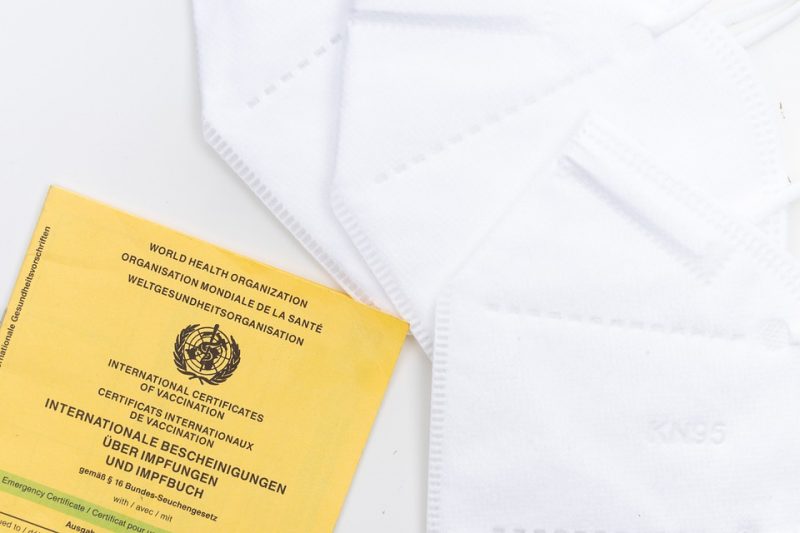
What You Need to Know About Mandatory Vaccination Laws in Canada
Over the course of the last two years, the world has struggled to reign in the global pandemic caused by COVID-19. Because a vaccine has been developed, mandatory lockdowns are no longer the norm, and schools and businesses can chart a path forward.
However, now the question arises: what do we do about vaccination policies? How should we approach the concept of mandatory vaccinations?
Vaccine Passports
COVID-19 vaccine passport systems have been instituted in several provinces, and the federal government has announced a mandatory vaccination policy for federal public servants. With these new policies in place, many are curious about the legal implications of these initiatives and other health measures.
As such, there is no shortage of unanswered questions, such as:
- Should Canadian employers be allowed to impose their own vaccine mandates for occupational health and safety reasons?
- What about accommodating employees who are unable or unwilling to be vaccinated?
- Are there exemptions based on protected grounds, such as religion?
- What are the human rights implications?
Read on to learn more about mandatory vaccination policies in Canada and their possible legal implications.
Have You Been Affected by a Mandatory Vaccination Policy?
Contact JPAK Employment Lawyers to Learn More About Your Legal Options
Canadian Jurisdictions with a Mandatory Vaccination Policy

Currently, mandatory vaccination policies have been put in place in Ontario and Quebec for many public and private spaces, in addition to a vaccine requirement for federal workers. The city of Toronto has introduced proof of vaccination requirements for its employees as well.
Ontario
In August, Ontario’s chief medical officer announced a directive mandating “hospitals and home and community care service providers” to have a vaccination policy for all stakeholders, including employees, staff, contractors, students and volunteers.
The specific details of the required policy is left up to the individual service providers, but the Ontario government requires that individuals provide proof of one of the following:
- Complete COVID-19 vaccination
- A medical reason for not receiving COVID-19 vaccination
- Completion of a COVID-19 vaccination educational session
Mandatory vaccination policies are also to be implemented in certain high risk settings, such as licensed retirement homes, women’s shelters, group homes and children’s treatment centres, among others.
Ontario’s Ministry of Education also intends to create a vaccination disclosure policy that will apply to all publicly funded school boards in the province, licensed child care settings and licensed children’s residential settings, including all employees and staff, with rapid antigen testing requirements for anyone not fully vaccinated against COVID-19.
Toronto
Shortly after Ontario’s announcement, the City of Toronto followed suit by introducing requirements that all municipal employees receive a COVID vaccination series approved by Health Canada or the World Health Organization.
Under this policy, Toronto employees must inform the city of their vaccination status. If they refuse, or have not received a complete vaccine series, they must attend educational classes on the benefits and health protection offered by COVID vaccination. Any employee who does not comply may be subject to various forms of disciplinary action, up to and including dismissal.
Under the city’s Human Rights and Anti-Harassment Discrimination Policy, employees can request accomodation if they are unable to receive a vaccine for reasons related to protected grounds as listed in the policy, providing they provide proper written proof of the need for accommodation.
Québec
Québec requires mandatory vaccination of health and social services workers against COVID-19. All health and social services workers must be fully vaccinated, barring a medical exemption (contraindication). This policy applies to doctors, nurses, midwives, and other medical professionals in virtually all settings where healthcare services are provided.
Affected workers are required to provide proof of their vaccination status. In the absence of such proof, they will be reassigned to other duties, however, if they cannot (or refuse to) provide proof they will be barred from returning to work without compensation.
Mandatory Vaccination Policy for Federal Workers

On August 13, 2021 the Government of Canada announced its intent to require vaccination throughout the federal workforce, as well as the transportation (air, rail, and marine transport) sector, which is federally regulated.
This vaccine requirement actually extends beyond the federal workforce, as it will apply to many travellers as well. Commercial travellers on planes, interprovincial trains and large marine vessels with overnight accommodations will have to provide proof of their complete vaccination series.
Although the federal government stopped short of extending mandatory vaccination policies to other sectors, it did announce that it expects “all organizations beyond the federally regulated sector to put in place their own vaccination strategies, drawing on the advice and guidance available from public health authorities and the Canadian Centre for Occupational Health and Safety.”
How Have Unions Responded?

The Canadian Labour Congress announced its support for public health measures that encourage COVID vaccination, however, it cautioned that Canadian “unions are concerned with the potential of mandatory vaccination policies to hand employers overreaching powers, with workers bearing the consequences.”
As such, the Congress believes that vaccination policies should be decided solely by public health officials, not businesses or unions, and that they reject “threats of discipline or termination as an approach to increasing vaccination rates” because they could run afoul of collective agreements and/or human rights codes.
Are you Concerned by Mandatory Vaccine Policies?

If you are someone who is concerned that mandatory vaccine policies could impact their employment rights, the labour law team at JPAK is here for you.
If your employer is seeking to impose a mandatory vaccination policy in the workplace, it’s important that you know your rights, so you can have all the information you need to make the right choice for you.
Book a meeting with one of our experienced employment lawyers for personalized legal advice on this very important issue.
